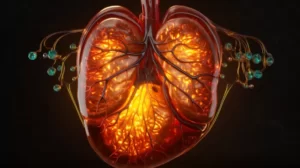Air pollution continues to be a major health concern for populations living in heavily polluted cities. One pollutant in particular—diesel exhaust—may have previously unknown effects on our genetic makeup. An investigation into this matter has recently uncovered that inhaling diesel exhaust can have potentially toxic effects on a person’s DNA methylation, which may lead to long-term health problems.
Diesel Exhaust and DNA Methylation
DNA methylation is a natural biological process where a methyl group is added to the DNA molecule. Methylation can change the activity of a DNA segment without changing its sequence. By doing so, the chemical coating influences the function of genes. In some cases, however, methylation can cause significant harm. A recent study conducted by the University of British Columbia and Vancouver Coastal Health has found evidence linking diesel exhaust inhalation to almost 2,800 alterations in DNA methylation points. At some of these points, the pollution increased methylation, and at others, it slowed methylation down.
Typically, studies of air pollution’s impact on health measure factors like airflow, blood pressure, and heart rhythm—all of which can be directly affected by pollution. However, this recent investigation digs much deeper. Researcher Chris Carlsten, a professor of respiratory medicine, explains, “Asthma, higher blood pressure, or arrhythmia might just be the gradual accumulation of epigenetic changes. So we’ve revealed a window into how these long-term problems arise. We’re looking at changes ‘deep under the hood.'”
Potential Reversibility of Damage
Fortunately, there is a silver lining. These changes in methylation occurred after only two hours of breathing in diesel exhaust, indicating that damage may be reversible. To repair the damage, it pays to commit to healthier lifestyle habits like increased exercise, and possibly boosting consumption of fruits and vegetables.
“Any time you can show something happens that quickly, it means you can probably reverse it—either through a therapy, a change in environment, or even diet,” says Carlsten.
As a result, individuals who live in polluted areas should focus on improving their overall health and making lifestyle changes that can potentially counteract the harmful effects of diesel exhaust on their DNA methylation.
Protecting Yourself from Air Pollution
Apart from adopting healthy lifestyle habits, there are additional preventive measures you can take to minimize your exposure to air pollution:
- Stay informed: Levels of air pollution can change daily, so keeping track of air quality in your local area is essential. Websites like AirNow provide daily air quality forecasts for various regions.
-
Plan outdoor activities accordingly: Opt for periods when air pollution is at its lowest to engage in outdoor activities like jogging, cycling, or going for a walk.
-
Avoid polluted locations: Try to steer clear of areas with a high concentration of vehicle traffic and heavy machinery, as these emit significant amounts of diesel exhaust.
-
Use air purifiers indoors: Along with a proper ventilation system, air purifiers can help to clean the air inside your home.
-
Take care of your indoor air quality: Air quality can be affected by indoor sources such as mold, cleaning products, and tobacco smoke. Keep an eye on these sources to maintain clean air indoors.
-
Seriously consider changing locations: Consider moving to a less polluted area if your location’s air quality is consistently poor.
By taking these measures into account, you can minimize your exposure to air pollution and reduce the risks of air pollution-related health conditions. Don’t underestimate the potential long-term effects of air pollution. Diesel exhaust and other pollutants do more than impact the air we breathe; they also impact our DNA, posing severe risks to our overall health and well-being.



![8 Simple Rules to Refresh Your Body with a Healthy Cleanse [See Pictures]](https://naturalhealthreserve.com/wp-content/uploads/2024/01/8-rules-healthy-cleanse-slideshow-300x168.webp)